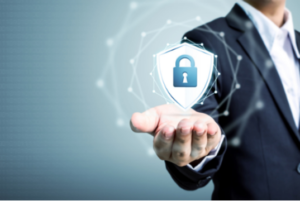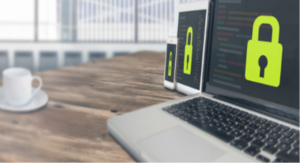Top 7 Website Security Tips For Solopreneurs
Starting an Online Business? Here are our top 7 website security tips for Solopreneurs to keep your home internet business safe.
Picture this. Whenever visitors come to your home, would you want them to feel insecure or uncomfortable? Or would you be happy with a stranger just coming and going as they please taking what they want? Certainly not!
 The same applies to your website. As a solopreneur running a home internet business such as an e-commerce website or a personal blog, your visitors need to feel secure when browsing through your site. With cases of hacking and cyber attacks rising every day, website security has become more critical than ever before.
The same applies to your website. As a solopreneur running a home internet business such as an e-commerce website or a personal blog, your visitors need to feel secure when browsing through your site. With cases of hacking and cyber attacks rising every day, website security has become more critical than ever before.
The sad part is that hackers are evolving and becoming smarter every day. As a solopreneur working online you need to stay ahead of hackers. If your site’s security is weak, it could take just a matter of minutes before hackers or scammers compromise your data. With this in mind, it is prudent that you use the latest website development and security strategies to safeguard your site and protect your customers and your online business.
Top 7 Website Security Tips When Starting An Online Home Business
-
Register your domain under your name
One of the biggest mistakes new web owners make is to allow hosting companies to pay for the domain name registration of their websites. This not only takes away your ownership rights, but also makes your website less secure. The hosting company may decide to sell your domain name when your current subscription expires.
When registering a new domain for your website, always make sure that your name or business appears as the owner. Your name should also appear as the administrative contact and the technical contact. This will give you much control over your domain and website.
-
Use an SSL certificate
Perhaps one of the easiest ways to ensure your website security is to use a Secure Socket Layer encryption. This security mechanism creates a secure connection between the server and browser, allowing you to transmit sensitive data such as login credentials, credit card info and social security numbers.
-
Set your domain to auto-renew yearly
Imagine what would happen to your home internet business if your website goes offline without notice. You will not only lose a huge chunk of your audience or customers, but it also could become an easy target for hackers. With this in mind, it is advisable that you set your domain to auto-renew annually to avoid any inconveniences.
-
Change your passwords regularly
Most hackers use highly advanced programs that employ brute force to crack passwords. However, these programs can only be successful if you are using weak credentials for your website. To secure your website from unauthorized access, it is advisable that you use strong passwords and change your login credentials regularly. Also, avoid using the same password for different accounts.
-
Implement Two-Factor Authentication
 Besides enforcing a strong password policy, you should also implement two-factor authentication to enhance your website security. Two-factor authentication is an advanced security mechanism that requires you to provide a unique piece of data that is only available to you other than your username or password.
Besides enforcing a strong password policy, you should also implement two-factor authentication to enhance your website security. Two-factor authentication is an advanced security mechanism that requires you to provide a unique piece of data that is only available to you other than your username or password.
-
Keep your website up to date
As technology advances, so does hacking techniques. To avoid falling victim to hackers, it is prudent that you update your website regularly using the latest security plugins and software updates. A good example of a comprehensive security plugin that you should consider is the Word Fence plugin designed for WordPress websites. This plugin works by scanning for hacked files and monitoring activities on your website.
-
Backup your critical data
Always backup your data regularly to secure important information such as your legal data, financial records, and customer account data and proprietary databases. This will provide you will a fall back plan in case something goes wrong.
Take Away Website Security Advice For Solopreneurs…
These days website development and security are almost synonymous. Essentially, the security of your home internet business begins from the development phase. If you enlist an inexperienced website designer, you are highly likely to face security issues in future.
With this in mind, you should enlist a reputable and highly experienced web development company to handle all your website security needs. Implementing a good web design can go a long way to prevent security and data loss incidents and is an essential component of being a solopreneur with a home based internet business.

Damen Edwards is the Managing Director EFOUR Web Developers, a family owned and operated business in South East Queensland. Damen is very passionate about helping his clients reach their fullest potential through their online presence.




